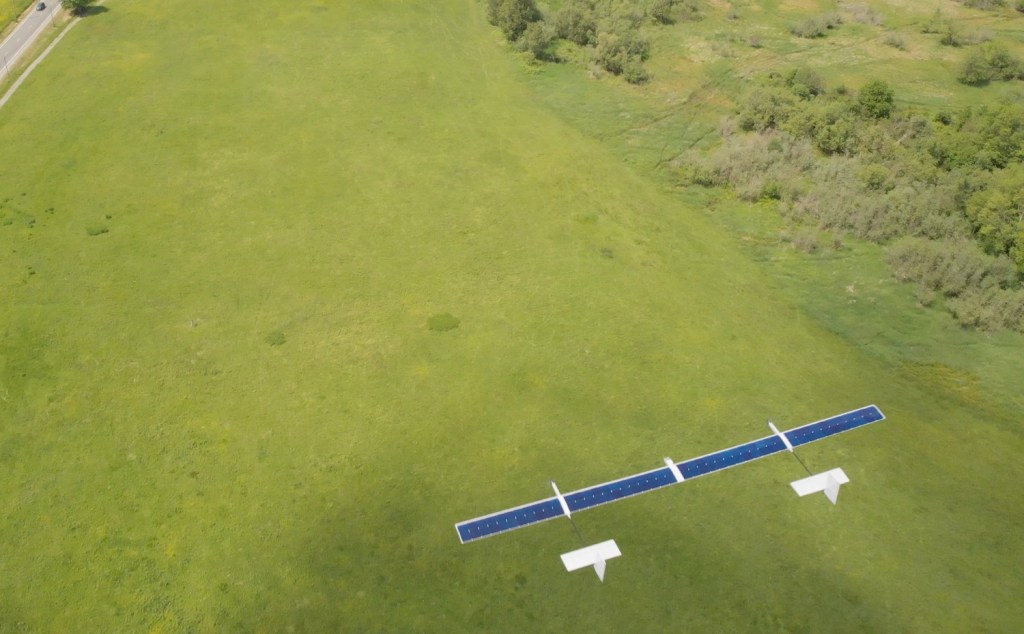Though many eyes are on space as orbit develops into a thriving business ecosystem, Radical is keeping things a little closer to the ground — but not too close. Its high-altitude, solar-powered aircraft aim to succeed where Facebook’s infamous Aquila failed by refining the tech and embracing more markets.
It’s hard to believe that Facebook’s ambitious plan to use solar-powered aircraft to provide internet access in far-flung locations got its start a decade ago. But though those dreams came crashing down when the project was scuttled, the concept remained intact.
Ultra-lightweight aircraft in the stratosphere can, in theory, stay aloft almost indefinitely by powering their propellers via solar panels. Load it up with sensors, telecommunications gear or anything else and you’ve got a versatile, mobile asset that isn’t hindered by orbital mechanics or chaotic weather patterns.
Radical CEO James Thomas suggested that the tech just wasn’t ready before now.
“There’s been interest in these high-alt, high-end aircraft for a long time,” he told TechCrunch in an interview. “It’s not a new idea, but in the past few years a lot of the supporting technologies have really matured — batteries, solar, even advanced compute. Look at where we’re at with battery tech now: we’re almost at 2x [of Aquila’s]. That puts us in a really strong position.”
The Seattle-based startup has raised a $4.5 million seed round to take it from a small-scale demonstrator aircraft, which it successfully flew for 24 hours straight recently, to a full-scale one. This full-size craft would have a wingspan around 100 feet, but weigh “as much as a person,” which I took to mean 100-200 pounds.

Putting the full-scale aircraft into the stratosphere is Radical’s primary goal, but that hasn’t stopped them from scouting out possible use cases.
“We think of what we’re developing as a platform for persistent airborne infrastructure,” he said, but for use cases where an orbital asset isn’t practical. For instance, orbital imagery of an area at risk of wildfires might come in once an hour — far too slow for a rapid response. But a high-altitude aircraft could provide 24/7 live monitoring for weeks straight, or even change its location to track new threats.
For telecommunications, although Starlink is rapidly emerging as the go-to solution for connectivity in remote areas, it has important limits, like the need for precision ground infrastructure. There are plenty of cases where a flying 5G station is a better bet (though you still need to work out the backhaul).
Radical was one of my picks from Y Combinator’s early 2023 batch, and I wrote at the time:
I always thought the idea was compelling but had yet to find its business model. Connectivity anywhere may be a huge new differentiator for mobile networks, and I bet satellites will be useful but expensive and congested. Why not a giant glider? It’s equally weird, but I appreciate the ambition.
Apparently I was correct!
One nice advantage of working in the stratosphere, Thomas pointed out, is that you have a significantly reduced regulatory load. Up above the closely monitored urban and commercial airspaces, it’s much simpler to operate and faster to get approvals.
Radical isn’t the only company looking into this; the AALTO project at Airbus aims to fill a similar gap in telecoms coverage, and Skydweller’s much larger platform (600 kilograms of batteries alone) is looking to enter a surveillance and intelligence role with a Palantir partnership.
Thomas said their advantage comes from a close relationship with the companies they work with, who “really want to be hands on with the system.” Not a one-size-fits-all platform, then, but also not purely bespoke — it depends on the customer (though he called them customers, they aren’t the paying type yet; the company is pre-revenue).
For now the goal is to get into the air within the next 12 months, proving the full-size craft can fly and putting them in a position to, presumably, start accepting money.
The seed round was led by Scout Ventures, with additional funding from investors including Inflection and Y Combinator.





























Comment